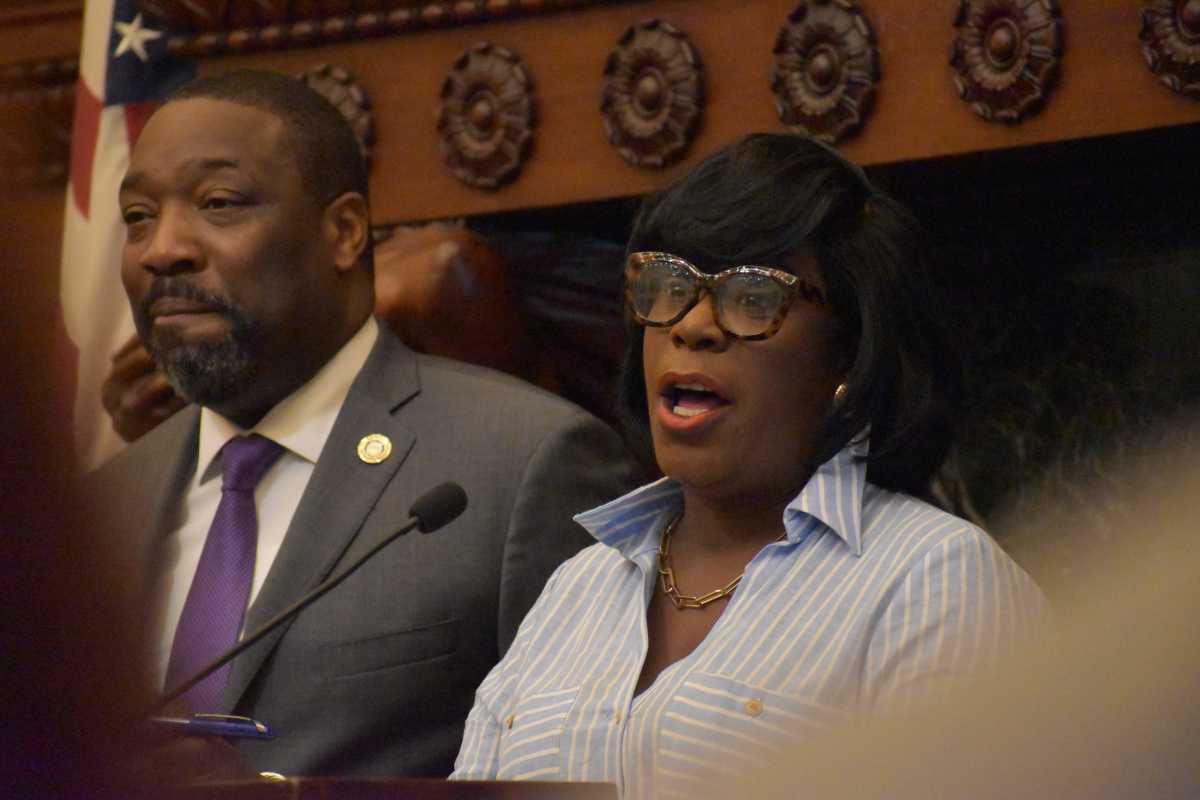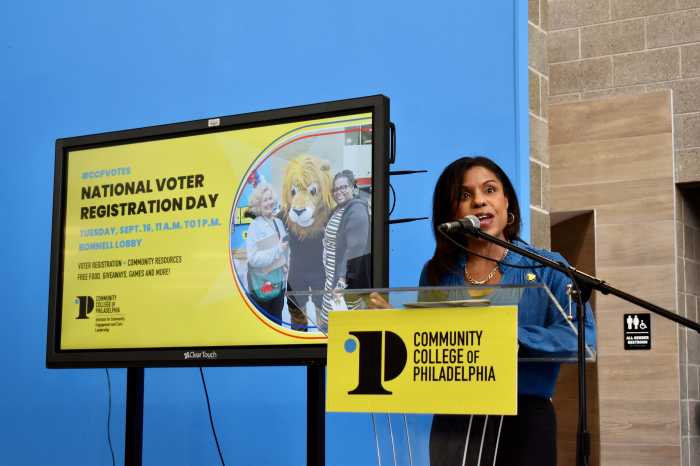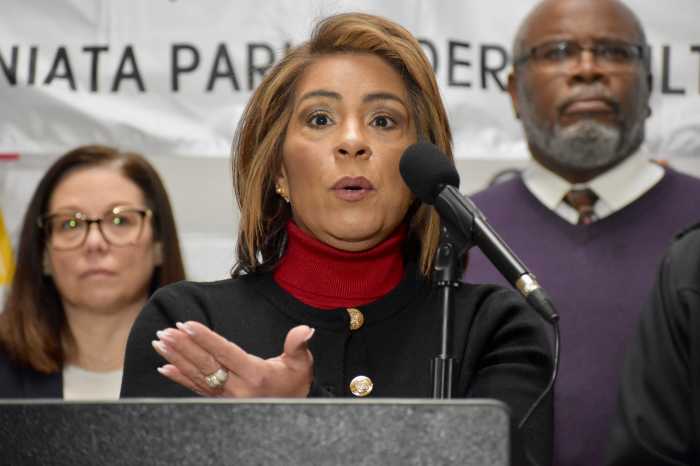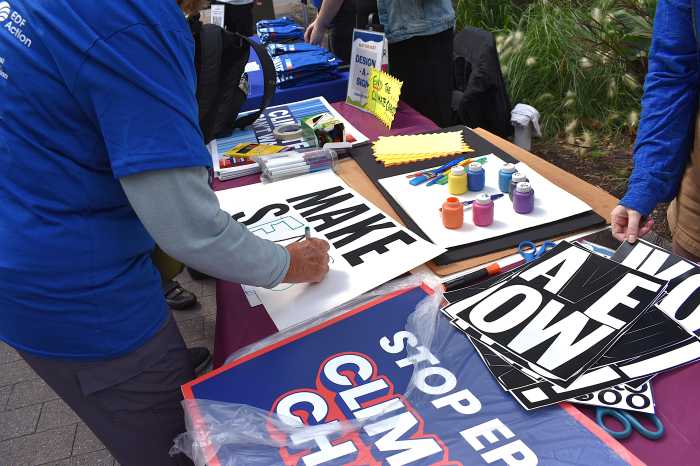Cherelle Parker and City Council reached an agreement on a $6.37 billion municipal budget early Thursday morning, following weeks of negotiation to finalize the mayor’s inaugural spending plan.
The operating and capital budgets, which received preliminary Council approval, incorporate a $20,000 increase in the popular Homestead Exemption and $100 million to begin building an addiction triage and wellness center.
“I said, ‘Don’t just listen to what we say, watch what we do,’” Parker said Thursday. “We’re showing the people of Philadelphia what we did.”
Compared to Parker’s original proposal, released in March, the operating budget that advanced out of committee spends $77.2 million more, incorporating many of the recent priorities expressed by lawmakers and the mayor.
The legislation is expected to receive final approval at Council’s meeting Thursday, its last session before summer break.
As with Parker’s initial plan, it does not raise taxes. Though not included in the original proposal, Council pushed for property tax relief, given an impending reassessment that is likely to result in increased real estate values.
The budget deal increases the Homestead Exemption from $80,000 to $100,000. The benefit effectively reduces the taxable value of a property by that amount, and anyone living in an owner-occupied property can enroll in the program.
Representatives from the Parker administration said the change will save homeowners an additional $280 a year.
In addition, Council on Thursday approved a low-income property tax freeze that will forgive or refund tax bill spikes for eligible homeowners whose assessments rise.
Individuals who earn $33,500 a year or less and couples making up to $41,500 can qualify for the program. The income limits were established through a state law that allows municipalities to bypass Pennsylvania’s uniformity clause.
“I want to be very clear that this property tax freeze is not a handout,” Councilmember Jamie Gauthier said at a City Hall news conference alongside Parker. “This is an investment in home ownership in our city.”
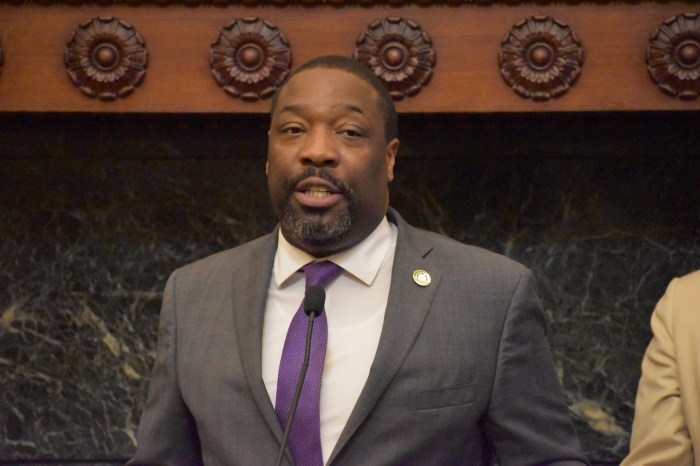
Though some lawmakers and members of the business community have successfully pushed in recent years for reductions to the city’s wage and business taxes, no changes to those rates were included in the budget.
Parker’s request for a $100 million investment in a triage and wellness center to treat hundreds of people battling addiction was granted. Earlier this week, news broke that the administration plans to build the site on city-owned land located within the Philadelphia Department of Prison campus in Holmesburg.
“I knew that when we identified that location, I would have to receive a great deal of criticism because people would say that I was attempting to criminalize addiction,” Parker said. “People have a right to have their opinion.”
Previously, the area was the location identified for a tiny house village, but Parker scrapped that idea. She said Thursday that work has already begun to build two new buildings and rehabilitate existing structures at the site. More than $100 million will eventually be needed to complete the project, Parker told reporters.
An extra $19 million was dedicated in the budget deal for Target Financial Assistance, bringing the total amount of funding for the initiative to $34 million for the next fiscal year, which begins July 1.
TFA provides rental payments to landlords as part of the city’s Eviction Diversion Program, which has become a national model. Council voted last month to make EDP permanent, and a group of progressive lawmakers had been pushing for $50 million in rental assistance.
Parker’s initial proposal did not detail funding for University City Townhomes, but the final plan is devoting $14 million in city money to build 70 affordable units on the site. Last year, the city reached a settlement with the owner of the property to set aside some of the land, following protests over the development’s future.
The mayor said the project will contribute to her goal of building or preserving 30,000 units of affordable housing. She characterized the housing investments in the budget as a “first step” in the process.
Lawmakers approved the $88.7 million in general fund dollars Parker proposed for the Office of Homeless Services, despite significant scrutiny from Council and multiple investigations into the department’s financial practices. The amount is roughly in line with OHS’s budget for the current fiscal year.
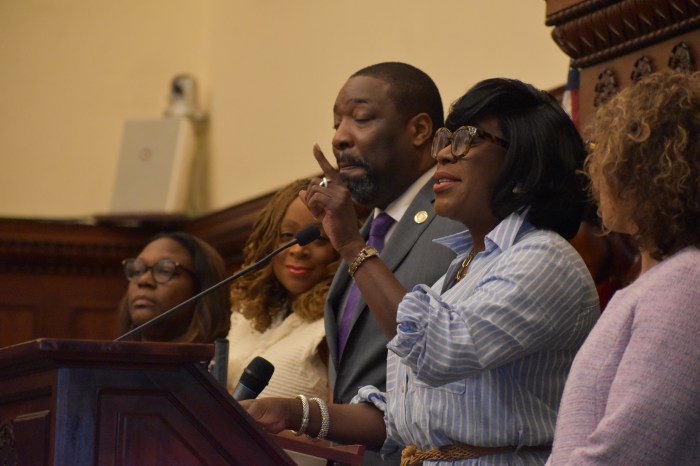
The School District of Philadelphia will now receive 56% of real estate tax revenue – a 1% increase – which the mayor’s office estimates will lead to $119 million in new funding over a five-year period.
Parker said Thursday that her administration will soon announce 20 schools that will offer year-round and extended day programming as part of a pilot program.
Funding was also included for a host of other initiatives she laid out in March, from hiring 400 police officers to establishing a program to train municipal workers through the Community College of Philadelphia to enhanced cleaning initiatives, administration officials said.
“Somebody’s going to look through what we did, and then they’ll say we forgot something,” Parker said. “They’re going to say we should have gotten it all done in five or six months. This is just the beginning. We’re just getting started. There is so much more work to do.”



